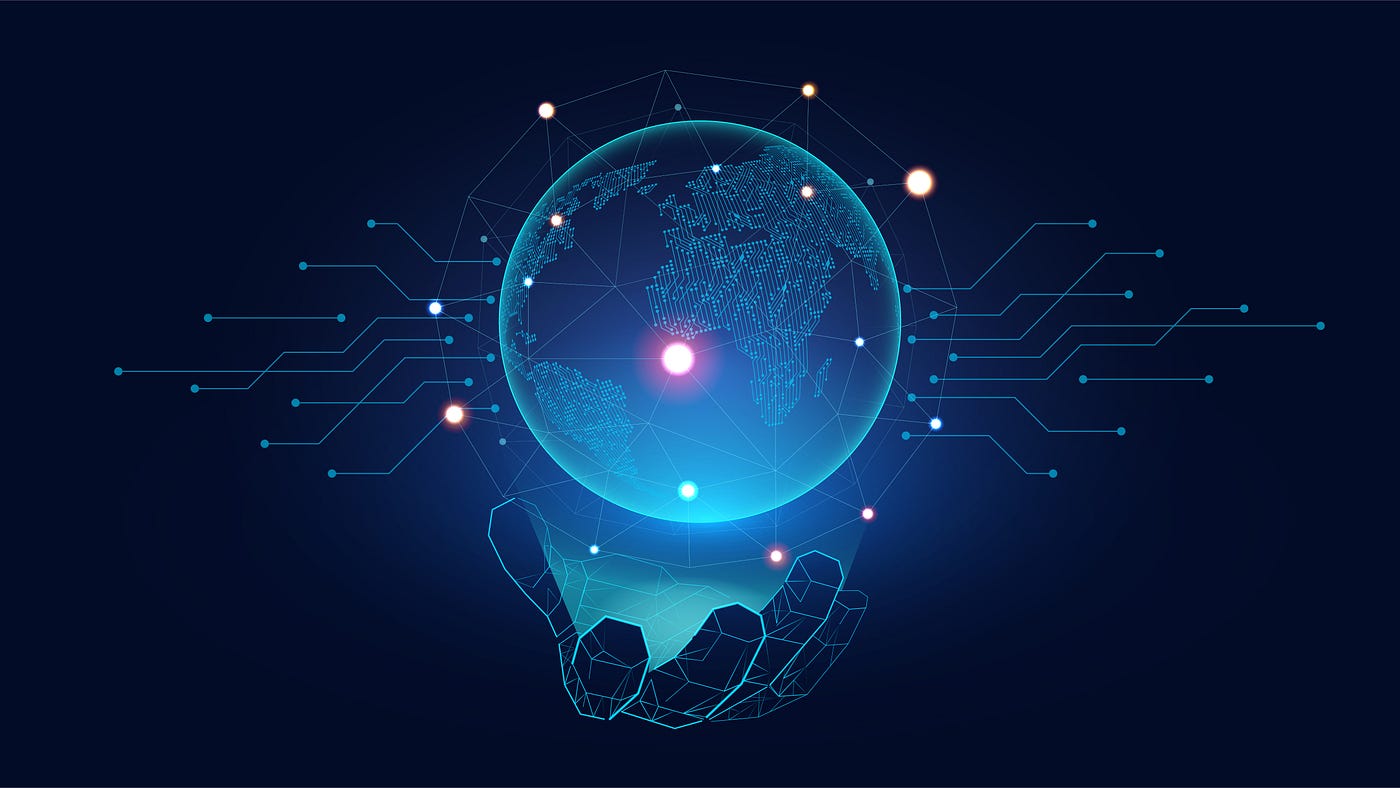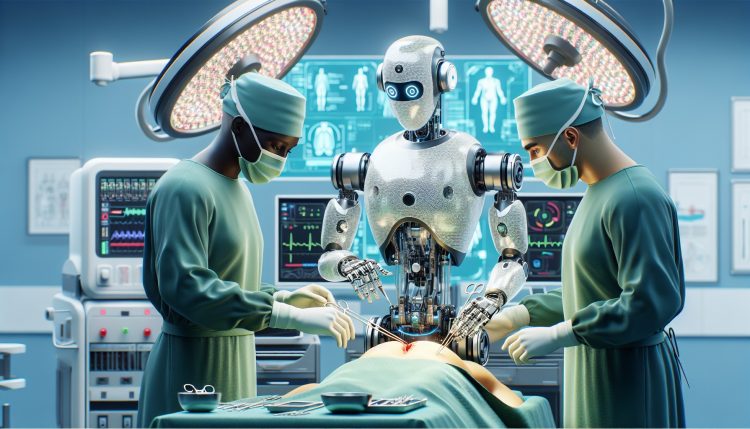In the past few decades, Artificial Intelligence (AI) has gone from a futuristic concept to a transformative force in the world of business, technology, and society at large. With its capability to learn from data, make decisions, and perform complex tasks, AI is no longer just the domain of science fiction. Instead, it is at the core of many industries, reshaping practices and setting new standards across sectors. But how exactly will AI transform industry standards?
Introduction: The AI Revolution
AI has already made significant inroads into various industries, from healthcare and finance to manufacturing and entertainment. With the constant development of algorithms, machine learning (ML), and neural networks, the possibilities are expanding rapidly. From improving efficiency to enhancing decision-making, AI is poised to drive change like never before.
The key question that arises is: What will be the true impact of AI on industry standards? Will it elevate existing practices, or will it render current methods obsolete? In this article, we explore the profound ways in which AI will shape and transform industry norms across different fields.
1. AI in Healthcare: The Future of Diagnostics and Treatment
Healthcare has always been an industry that values accuracy, efficiency, and innovation. AI is revolutionizing these very aspects by introducing technologies that enhance both diagnosis and treatment procedures.
AI-Powered Diagnostics
AI systems are already being used to analyze medical images such as X-rays, MRIs, and CT scans. Machine learning models can recognize patterns and anomalies that even experienced doctors might miss. Tools like Google’s DeepMind and IBM’s Watson are increasingly used for early-stage cancer detection, analyzing patient data for personalized treatment plans, and identifying potential health risks.
As AI tools become more sophisticated, the speed and accuracy of diagnostics will improve drastically. The ability to predict diseases like cancer, heart conditions, or neurological disorders before symptoms appear will revolutionize preventive medicine, raising new standards for early intervention and treatment planning.
Personalized Medicine
AI’s ability to process vast amounts of data means it can tailor medical treatment to individual patients, moving away from a “one-size-fits-all” approach. This includes understanding how certain genetic markers or lifestyle factors contribute to disease and offering more precise treatment plans based on a patient’s unique profile.

As AI continues to evolve, industry standards in healthcare will shift from generic treatments to highly personalized, data-driven healthcare, making treatment safer, more effective, and more cost-efficient.
2. AI in Finance: Transforming Decision-Making and Risk Management
AI’s impact on the finance industry is already profound, with applications ranging from fraud detection to automated trading systems. But the true transformation lies in how AI will alter industry standards in financial decision-making and risk management.
Automating Routine Tasks
One of the most immediate applications of AI in finance is the automation of routine tasks. For example, AI-powered chatbots are increasingly handling customer inquiries, while algorithms are making quick decisions regarding loan approvals, credit scoring, and portfolio management.
Automation can lead to a more efficient, error-free workflow and reduce operational costs. As AI continues to evolve, the traditional roles of financial advisors, analysts, and traders may be redefined, requiring new skill sets and reshaping employment dynamics in the sector.
Predictive Analytics and Risk Management
AI is a game-changer in predicting market trends and managing risks. Machine learning algorithms can analyze historical data, detect patterns, and forecast potential market shifts more accurately than human analysts. These capabilities allow businesses and investors to make more informed decisions, improving financial strategies, portfolio management, and even regulatory compliance.
In the coming years, AI-driven risk assessment tools will become industry standards, providing more robust frameworks for identifying financial risks and opportunities, improving accuracy, and enabling faster decision-making.
3. AI in Manufacturing: Streamlining Production and Improving Efficiency
AI’s influence in manufacturing is already evident in processes such as predictive maintenance, quality control, and supply chain management. As AI technologies advance, they will continue to raise industry standards for operational efficiency, productivity, and safety.
Predictive Maintenance
One of the most impactful AI applications in manufacturing is predictive maintenance. By using sensors and AI algorithms, machines can monitor their own health and predict when they are likely to fail. This allows businesses to schedule maintenance proactively, reducing downtime, minimizing costs, and increasing the overall lifespan of equipment.
Smart Automation and Robotics
AI-driven robots and automated systems are already transforming production lines. These systems can perform complex tasks with high precision, leading to higher throughput and less waste. The standard for what constitutes an efficient and cost-effective manufacturing operation will shift as AI-driven automation becomes ubiquitous.
4. AI in Retail: Redefining Customer Experience and Supply Chain Efficiency
The retail industry has embraced AI to enhance customer experience, optimize inventory, and streamline supply chains. However, as AI continues to evolve, these innovations will redefine the way businesses interact with consumers and manage resources.
Personalized Customer Experience
AI’s ability to analyze customer behavior and preferences enables retailers to offer personalized shopping experiences. Recommendation algorithms, like those used by Amazon and Netflix, are already commonplace. However, as AI becomes more advanced, it will allow retailers to create highly customized product offerings, marketing messages, and even pricing models tailored to individual customers.
The new standard will be a personalized, data-driven approach to marketing, where the consumer’s experience is curated based on their habits and preferences, creating an ever-deepening relationship between brands and consumers.
Smart Supply Chain Management
AI’s ability to process and analyze data in real time has revolutionized supply chain management. Through predictive analytics and demand forecasting, AI helps businesses anticipate inventory needs, reduce waste, and optimize logistics. The future will see AI not just optimizing existing processes but actively predicting consumer demand, optimizing routes, and improving procurement strategies to ensure products are available when and where they’re needed.
5. AI in Transportation and Logistics: The Rise of Autonomous Systems
The transportation and logistics industry is undergoing a major transformation driven by AI. From autonomous vehicles to optimized routes, AI is changing the way goods and people move.
Autonomous Vehicles and Drones
Self-driving cars and trucks are one of the most anticipated developments in the transportation sector. AI is enabling vehicles to navigate with increasing accuracy, reducing human error and potentially lowering accident rates. In logistics, drones and autonomous delivery vehicles are set to transform last-mile delivery, reducing delivery times and costs while improving efficiency.
As autonomous systems become more reliable, the industry standard for safety, efficiency, and delivery times will evolve, challenging regulatory frameworks and raising new ethical questions about human involvement in transportation.
Route Optimization and Fleet Management
AI is also reshaping logistics with route optimization algorithms, helping fleet managers plan the most efficient routes, avoid traffic, and reduce fuel consumption. As AI-driven systems become more advanced, they will further refine the standards for fleet management, offering real-time adjustments to account for weather, traffic, and even customer behavior.
6. AI in Education: Revolutionizing Learning and Administrative Efficiency
The education sector is gradually adopting AI to enhance both teaching and administrative functions. From personalized learning experiences to automating grading and administrative tasks, AI is changing the way we educate future generations.
Personalized Learning

AI has the ability to adapt to individual learning styles and paces. Adaptive learning systems can adjust the content and speed of lessons based on a student’s progress. This creates a more customized, efficient learning environment and ensures that students are receiving the support they need at the right time.
As AI becomes more integrated into education systems, personalized learning will become the industry standard, offering tailored educational experiences for every student.
Streamlining Administrative Tasks
AI can automate administrative tasks such as grading assignments, processing student records, and managing class schedules. By offloading these tasks to AI, educators can focus more on teaching, while institutions benefit from increased operational efficiency.
7. Ethical Considerations and the Future of AI in Industry
While AI holds immense promise, it also raises ethical and regulatory challenges that must be addressed as it becomes more integrated into various industries.
Job Displacement vs. Job Creation
One of the most significant concerns is the potential for job displacement. As AI automates more tasks, certain roles may become obsolete. However, new industries, roles, and opportunities will emerge as AI evolves, requiring workers to adapt and upskill in ways that ensure future job security.
Privacy and Bias Concerns
AI systems, especially those used in sectors like healthcare, finance, and retail, rely heavily on data. Ensuring that AI does not perpetuate biases or compromise privacy will be essential for creating trust. Industry standards will need to evolve to ensure that AI systems are transparent, accountable, and fair.
Conclusion: The AI-Driven Future of Industry Standards
AI is poised to redefine industry standards across various sectors, driving more personalized, efficient, and intelligent systems. Whether it’s in healthcare, finance, manufacturing, retail, or logistics, the transformative impact of AI will elevate operational efficiency, enhance customer experiences, and set new benchmarks for performance.
However, as we move toward an AI-driven future, it’s crucial that we remain mindful of ethical considerations, regulatory frameworks, and the evolving demands of the workforce. The industries that successfully integrate AI into their processes will set new standards that are more dynamic, innovative, and responsive to the needs of the modern world.










































